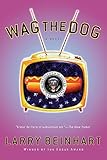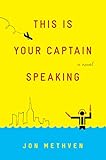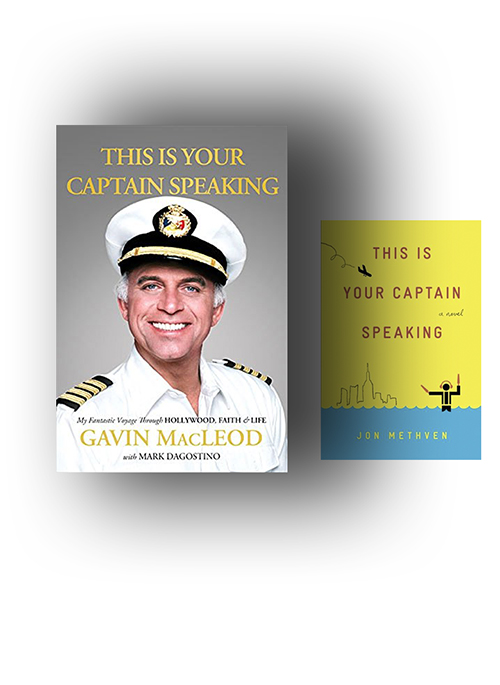On a recent visit to Amazon to update my user page, I discovered my first novel, published in 2012, had received hundreds of reviews, most of which carried a five-star rating. I jumped to the most satisfying conclusion: After years of sluggish book sales, suddenly I was a trending writer who had amassed a devoted following through no effort of my own. Word was getting out; I was probably famous.
“So Life Affirming,” begins a review of our books from reader Dr. Kathy McCoy, a verified Kindle user. “I found this book fascinating, illuminating and inspiring.” “Great Book! Great Guy!” according to mega-fan Barbara: “I am an even bigger fan than I was before.” And from an explanation-point-generous H. Strawer, “I literally devoured this book! I couldn’t put it down! I wonder if he needs another granddaughter? If so, I’d like to apply for the job!”
 My novel is about a smuggler of celebrity semen who leaves a vial of priceless John Lennon seminal fluid aboard an airplane that has been intentionally crash-landed into the Hudson River—think Sully Sullenberger’s “Miracle on the Hudson” meets Wag the Dog.
My novel is about a smuggler of celebrity semen who leaves a vial of priceless John Lennon seminal fluid aboard an airplane that has been intentionally crash-landed into the Hudson River—think Sully Sullenberger’s “Miracle on the Hudson” meets Wag the Dog.
 It took a brief investigation to understand what was going on. Through some website glitch, hundreds of reviews for The Love Boat captain Gavin MacLeod’s 2013 memoir, This Is Your Captain Speaking, were melding with my sevens of reviews for a 2012 satirical novel, This Is Your Captain Speaking.
It took a brief investigation to understand what was going on. Through some website glitch, hundreds of reviews for The Love Boat captain Gavin MacLeod’s 2013 memoir, This Is Your Captain Speaking, were melding with my sevens of reviews for a 2012 satirical novel, This Is Your Captain Speaking.
 His memoir, according to the book’s description, follows the actor’s career as he discovers “the key to happiness was only through a deep faith in God.”
His memoir, according to the book’s description, follows the actor’s career as he discovers “the key to happiness was only through a deep faith in God.”
I won’t pretend it didn’t go to my head what the reading community thought about me and, to a greater extent, my literary antagonist Captain Stubing. But despite being an innocent benefactor of hundreds of glowing five-star reviews, I felt like an impostor.
I made my way through the Amazon Help Desk labyrinth hoping to address the mix-up but was met with a series of algorithms and help topics and FAQs. What could I say to the mega-retailer’s persistent question, “What can we help you with?” There was no preprogrammed solution to my dilemma: My novel reviews have been hijacked by a seemingly nice but title-hacking actor from the ’70s lore of The Mary Tyler Moore Show and McHale’s Navy. I never heard back from the company.
I wanted to contact Gavin MacLeod, but I didn’t know anyone who ran in the 83-year-old actor’s literary circle. I contacted his ghostwriter, who offered to give it some thought but then went about his life as though this weren’t the most pressing literary matter. Eventually I reached out to Brooklyn writer Emily Schultz, who experienced a similar predicament in 2014.
 Her 2006 novel, Joyland, was followed by an identically titled book by best-selling author Stephen King. Making a statement about traditional publishing, King opted not to publish his Joyland in e-book format, a decision that threw off Amazon’s algorithm. His fans flocked to her e-book edition instead.
Her 2006 novel, Joyland, was followed by an identically titled book by best-selling author Stephen King. Making a statement about traditional publishing, King opted not to publish his Joyland in e-book format, a decision that threw off Amazon’s algorithm. His fans flocked to her e-book edition instead.
 “As an author I want all my books to come by their reviews—good or bad—honestly,” Schultz told me. “But then I received a massive royalty check from a 10-year-old book and I wasn’t as concerned.”
“As an author I want all my books to come by their reviews—good or bad—honestly,” Schultz told me. “But then I received a massive royalty check from a 10-year-old book and I wasn’t as concerned.”
Schultz began the blog “Spending the Stephen King Money,” which allowed her to document the dilemma: spending money on dinner out, a new computer, raising her autistic child, even speaking with the famed author of nearly 100 books, “who was pretty magnificent about everything,” Schultz said. In addition to spending every last cent of the royalties, the blog of exactly what she bought, followed by a section—WOULD STEPHEN KING LIKE IT?—was so entertaining it was picked up by several media outlets. Stephen King himself even tweeted, “Emily Schultz is my new hero. You go with your bad self, girl.” However, the impact of automation and algorithms on modern life is not lost on her.
“As we experienced with the Facebook revelations, algorithms are also isolating us more into habits, and what the algorithm thinks we believe or want. After the 2016 election, it’s not a theoretical concern anymore,” Schultz said. “People are becoming more aware of how they engage with the connected world, how it’s changing them, whether that’s social media or shopping. Maybe our own literary glitches are an early part of that understanding.”
I haven’t received any royalty checks. The reviews seem to have tapered off. Perhaps the algorithm will soon correct itself. But a small part of me can’t stop imagining a Love Boat redux, the producers incorrectly following the faulty reviews and contacting me. Any old cast member will do—Doc, Isaac, Gopher. But a revamped Captain Stubing, circa me, gazing out over the helm of the Pacific Princess while setting a course for adventure seems like an Amazon-sized, algorithm-conjured, 2018-type ending.










